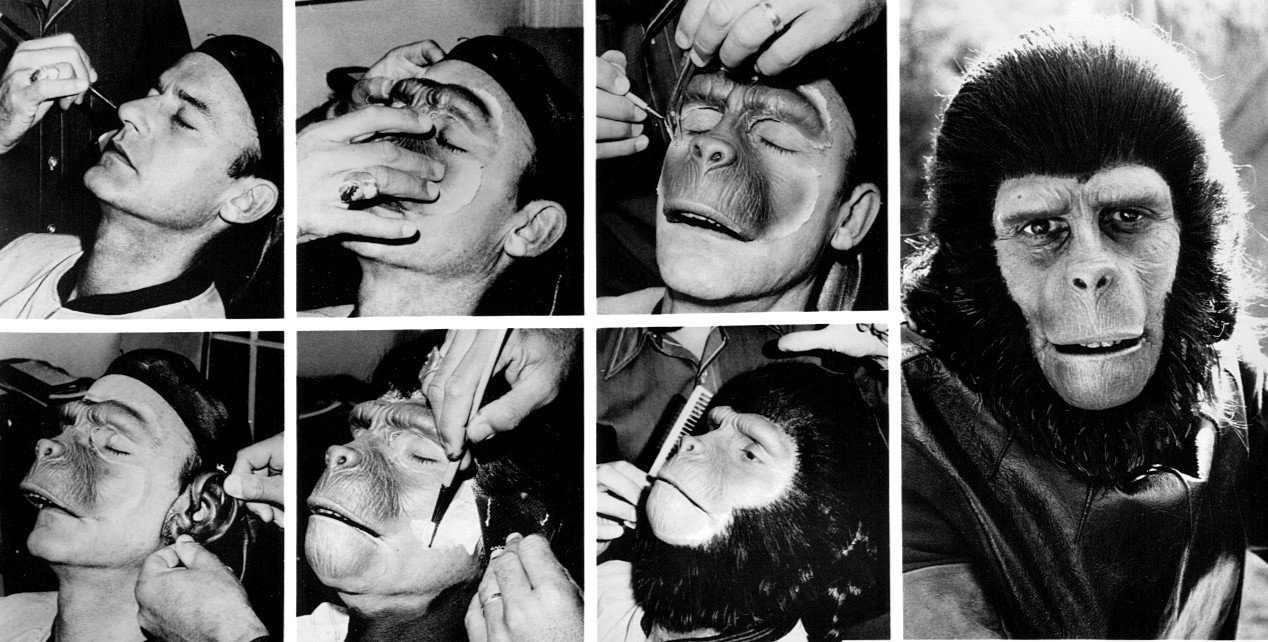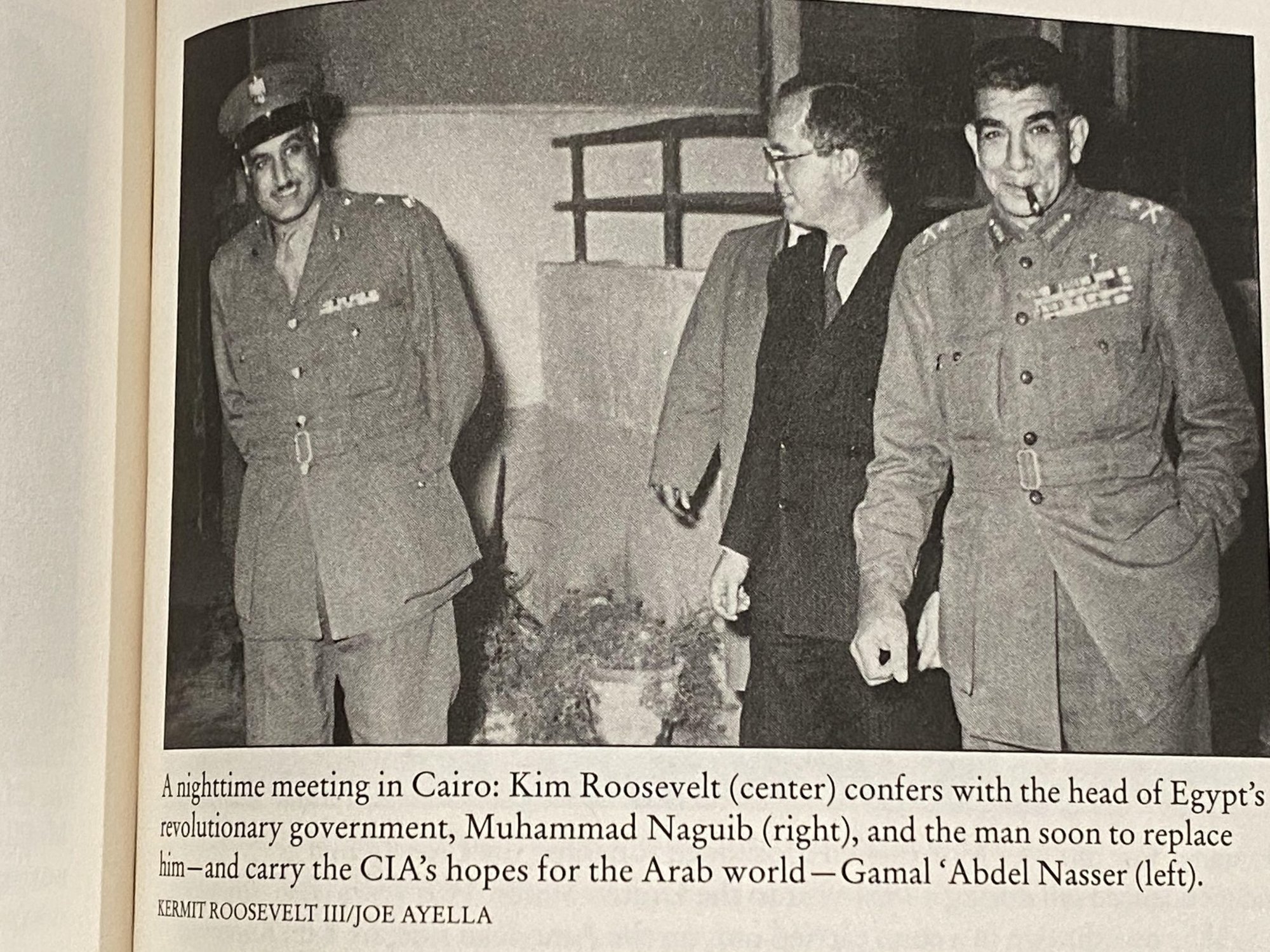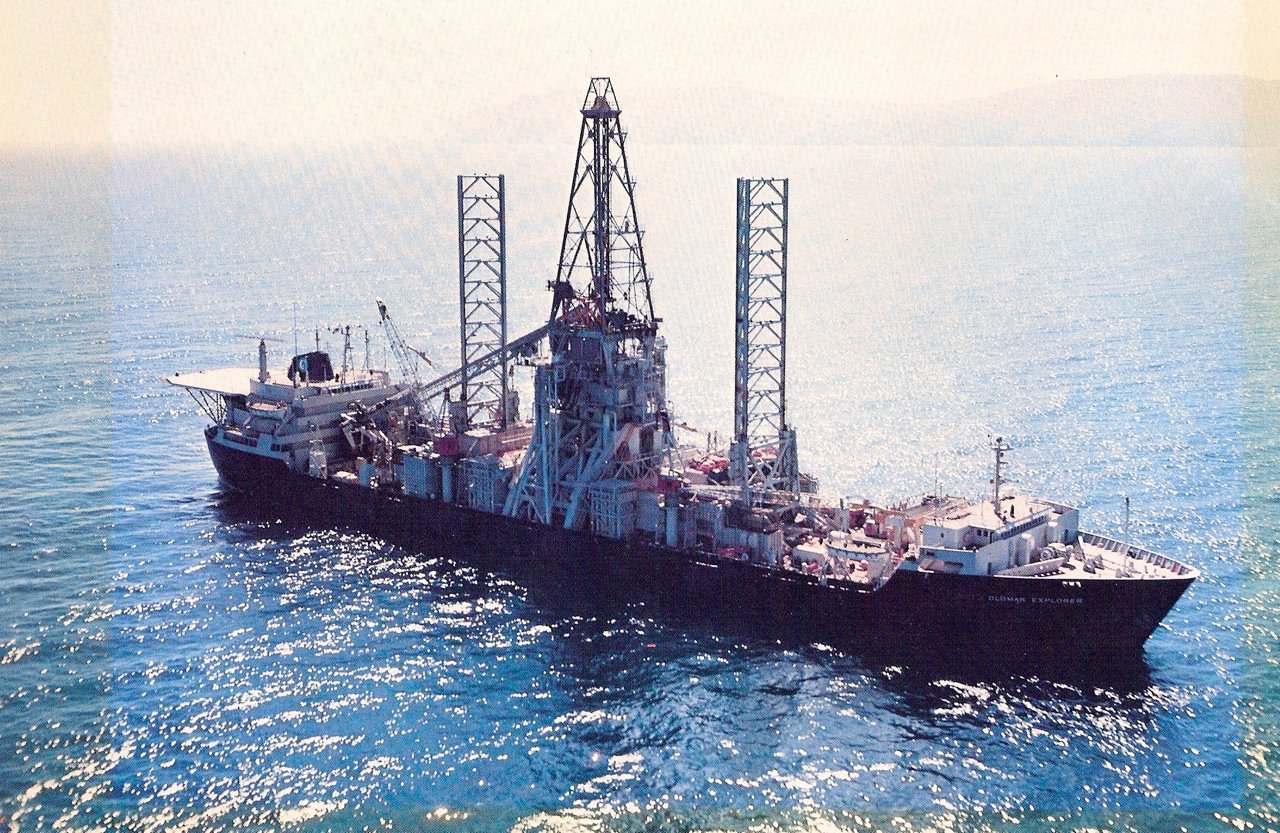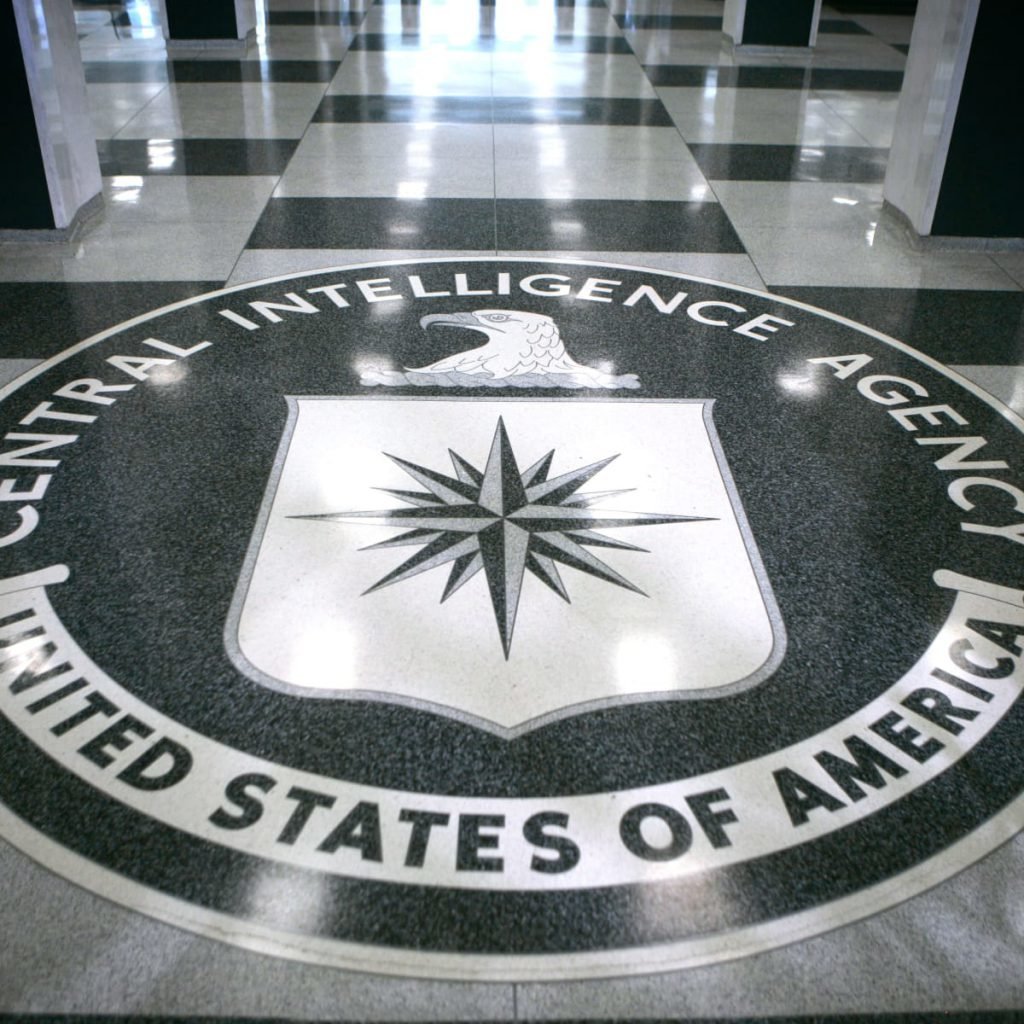
John Chambers was awarded the CIA’s Intelligence Medal of Merit for his work in Canadian Caper, the CIA mission to rescue the hostages during the Iranian Hostage Crisis. The make-up artist is seen here applying prosthetic makeup design for Roddy McDowell in Planet of the Apes TV series (1974). This same level of detail and devotion to duty, aided in helping the CIA trick KGB spies with the JIB, commonly known as an inflatable sex doll. Photo courtesy of Wikimedia Commons.
The CIA was established in 1947, and its track record is full of tremendous successes and controversial failures. The agency’s reputation is respected and feared, and its activities are cloaked in secrecy and mystique. Yet every so often its operations are declassified, and the documents and the deeds of the case officers who served within these programs reveal missions that are almost too unbelievable to be true. Project MK-Ultra is perhaps the most mind-boggling. The CIA literally ran a top-secret program from 1953 to 1973 that involved conducting hundreds of mind-control experiments on US citizens.
In addition to that harebrained program, we compiled a list of three more insane operations that combine ingenuity with preposterous spycraft.
Sex Dolls in Moscow
John Chambers wasn’t a spook but a highly respected Hollywood costume specialist who loaned his expertise to the agency from time to time. He famously assisted the CIA in creating a fake sci-fi movie to fool the Iranians during the Iranian hostage crisis, in what would be the basis for the 2012 movie Argo. This time, however, his talents were needed for a Moscow mission. Walter McIntosh, head of the CIA’s disguise department from 1977 to 1979, asked for his help. CIA operations officers, or spies, had difficulty traveling around Russia because they were always being tailed by KGB surveillance teams.
How did the CIA plan to hide its officers’ movements from watchful eyes? Inflatable sex dolls. The premise was to have the CIA officer sitting in a vehicle’s passenger seat, holding an ordinary suitcase on his lap. To lose his tail in order to contact an asset at a secret meeting, the CIA officer would place the suitcase in his seat and sneak away. The suitcase would then deploy like an airbag to reveal the inflatable sex doll. From a distance it would appear as if there were still two officers in a vehicle, but in reality, there would be only the driver and his unusual companion.
McIntosh humorously recounted how he acquired the inflatable dolls in the first place. “My secretary in those days was a very nice, prim and proper lady of high religious upbringing,” McIntosh told Newsweek. “She was one of those people that was always volunteering to do the extra chore. But I just could not see sending her out to buy sex dolls. So I just strolled about until I saw a sign, Adult Book Store, and sure enough they had a selection of sex dolls.”
The more embarrassing part was his return for several additional dolls. “As I was buying four or five at a time and often over a period of a few weeks, I am sure I got quite a reputation,” he said. The prototypes were called JIB — for “jack-in-the-box” — and surprisingly were successful. In December 1982, “Jack” sprung out from a phony birthday cake box, without rousing the suspicions of the KGB agents in the trailing car.
Project FF

Kermit “Kim” Roosevelt Jr., a member of the famous political family and chief of the CIA’s Near East and Africa (NEA) division, was tasked in 1952 to persuade Egypt’s King Farouk into implementing a reform program to quell violence from revolutionary forces in Egyptian communities. The classified operation was informally named Project FF after the CIA’s unflattering nickname for Farouk: “Fat Fucker.” The derogatory name-calling arose from Farouk’s lavish lifestyle and unconfirmed rumors of eating 600 oysters per day. If this effort of peaceful revolution failed, Roosevelt was instructed to abandon Farouk and oust him from power.
The Society of Free Officers staged a military coup d’etat overnight on July 22 to July 23 and installed Col. Gamal Abdel Nasser. Farouk sailed aboard his yacht to exile in Italy away from the CIA’s influence. Miles Copeland Jr., the CIA station chief in Cairo, later claimed Project FF served as a blueprint for Operation Ajax, the successful coup d’etat in Iran a year later.
Project Azorian

The US Navy used underwater sonar technology to discover the precise location of the Soviet K-129 Golf II-class submarine, which sank 1,500 miles from Hawaii in 1968. The submarine had three nuclear-armed ballistic missiles onboard and was resting on the ocean bottom 16,500 feet below the surface. The massive 1,750-ton and 132-foot-long submarine was an intelligence goldmine if it could be recovered. The Soviets had already tried but failed.
So the CIA hired creative-thinking engineers to construct a large mechanical claw that was capable of lifting the metal relic 3 miles up from the depths of Pacific Ocean. To execute the plan, the CIA recruited billionaire Howard Hughes. From 1970 to 1974, the engineers worked in total secrecy to install special capabilities aboard the Hughes Glomar Explorer, a commercial deep-sea drilling ship.
The ship had a derrick similar to an oil-drilling rig, a pipe-transfer crane, two tall docking legs, the mechanical claw, a center docking well called the “moon pool” to hold the captured sub, and doors that opened and closed on the well’s floor. This enabled the team to conduct the entire recovery mission underwater without risking discovery by other ships, reconnaissance aircraft, or spy satellites.
On July 4, 1974, the Hughes Glomar Explorer left Long Beach, California, and sailed to the location of the sunken submarine. Hughes provided the CIA with the perfect cover story in that if questioned they could suggest that they were conducting marine research. The monthlong mission was dicey, and engineers had to apply supporting steel pipe in 60-foot sections to counter the force of the ocean’s current on the mechanical claw’s descent. When it had the submarine in its grasp, they reversed the process by removing the steel beams. While the K-129 was a third of the way up, a section broke off, but the operation still managed to salvage some of the vessel, recovering the submarine’s crew and giving them a burial at sea.
A second mission was planned to recover the lost section. However, in 1975 the Los Angeles Times exposed the story of Project Azorian and further recovery efforts were cancelled. The top-secret mission remains an engineering wonder and is considered one of the most daring US intelligence operations ever conceived.

Matt Fratus is a history staff writer for Coffee or Die. He prides himself on uncovering the most fascinating tales of history by sharing them through any means of engaging storytelling. He writes for his micro-blog @LateNightHistory on Instagram, where he shares the story behind the image. He is also the host of the Late Night History podcast. When not writing about history, Matt enjoys volunteering for One More Wave and rooting for Boston sports teams.
BRCC and Bad Moon Print Press team up for an exclusive, limited-edition T-shirt design!
BRCC partners with Team Room Design for an exclusive T-shirt release!
Thirty Seconds Out has partnered with BRCC for an exclusive shirt design invoking the God of Winter.
Lucas O'Hara of Grizzly Forge has teamed up with BRCC for a badass, exclusive Shirt Club T-shirt design featuring his most popular knife and tiomahawk.
Coffee or Die sits down with one of the graphic designers behind Black Rifle Coffee's signature look and vibe.
Biden will award the Medal of Honor to a Vietnam War Army helicopter pilot who risked his life to save a reconnaissance team from almost certain death.
Ever wonder how much Jack Mandaville would f*ck sh*t up if he went back in time? The American Revolution didn't even see him coming.
A nearly 200-year-old West Point time capsule that at first appeared to yield little more than dust contains hidden treasure, the US Military Academy said.













